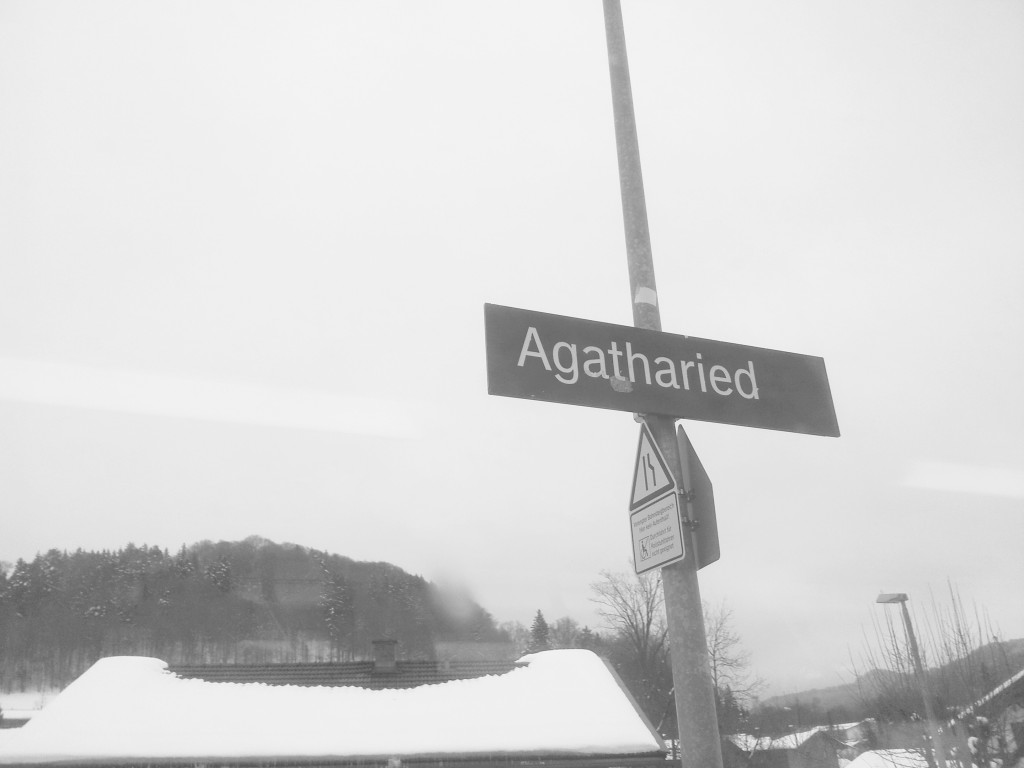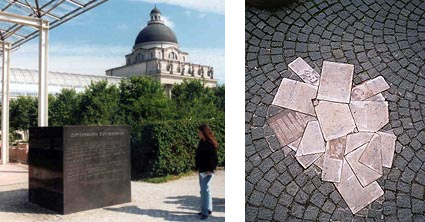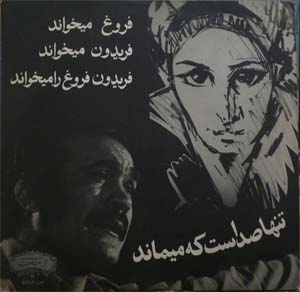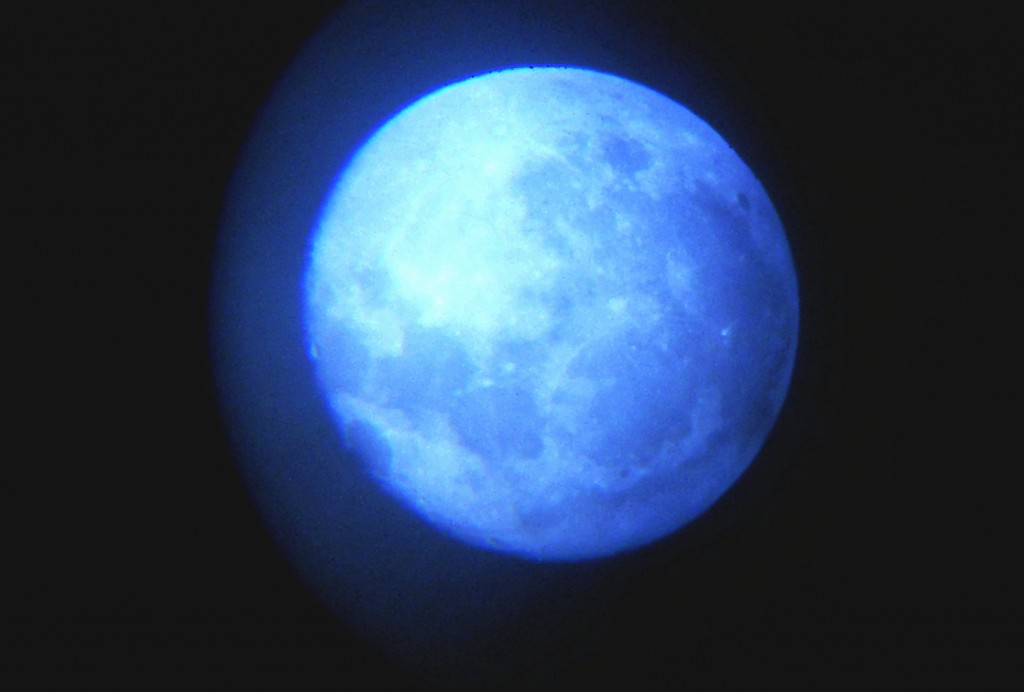Eine Theorie besagte, dass seine besondere Verbindung zum Iran und seinen Menschen auf ein fast 25 Jahre zurückliegendes Ereignis zurück ging, von dem aus allerdings eine Verbindung bis in die Gegenwart reichte.
Damals war Deutschland und die ganze Welt noch strikt getrennt in Ost und West. Er lebte auf der östlichen Seite des sogenannten Eisernen Vorhangs und hatte eigentlich nur Politik im Kopf. Seine Doktorarbeit im Institut für Krebsforschung machte eigentlich immer nur dann einen Schritt vorwärts, wenn gerade keine Untergrund-Versammlung, kein Treffen mit oppositionellen Schriftstellern oder Malern oder keine Reise zu irgendeinem illegalem Konzert auf dem Programm stand. Weil man aber selbst dafür nicht ganz ohne Geld auskam, und weil das Doktorandengehalt ziemlich mager war, arbeitete er an den Wochenenden oft in Berliner Restaurants als Kellner. Einmal, es war ein Sonntag und noch ziemlich früh, etwa gegen 8 Uhr, bediente er dabei in einem Ost-Berliner Bahnhofscafe eine iranische Familie, die gerade mit dem Nachtzug aus Schweden angekommen waren. Sie lebten dort als politische Exilanten und waren jetzt auf dem Weg nach Westberlin, wo sie Freunde besuchen wollten. Offensichtlich hatten sie die nächtliche Zugfahrt nur auf einfachen Sitzplätzen verbracht, und sahen dementsprechend unausgeschlafen aus. Das fast noch menschenleere Bahnhofs-Cafe mit seinen pompösen Polstersesseln schien ihnen eine willkommene Gelegenheit zu sein, um sich selbst und ihrer gerade dreijährigen Tochter, die sie offensichtlich während der ganzen Fahrt eng an sich gepresst hatten, endlich eine Pause und etwas Erholung von den Strapazen der Nacht zu gönnen. Sie hatten es anscheinend nicht sonderlich eilig, um über einen der wenigen Checkpoints in den Westteil der Stadt zu gelangen. Als er mit ihnen ins Gespräch kam amüsierte es ihn anfangs, dass sie sich trotz der hinter ihnen liegenden strapaziösen Nacht sehr interessiert an den Einzelheiten des Leben im Sozialismus zeigten. Es war klar, dass sie sich theoretisch sehr ausgiebig mit dem Kozept einer klassenlosen Gesellschaft und der Idee von der Gleichheit aller den Menschen befasst hatten, aber ihre Vorstellungen glichen denen, die sich kleine Kinder vom Schlaraffenland machten. Gleichzeitig aber strahlten sie aber eine tiefe Traurigkeit aus, weil sie ihre eigenen politischen Träume mit der Vertreibung aus ihrer Heimat bezahlt hatten. Sie gehörten zu den Iranern, die zehn Jahre zuvor gegen den Schah opponiert hat und die Monarchie gegen eine demokratische, sozialistische Gesellschaft austauschen wollten. Als der Aufstand der Volksmassen tatsächlich zum Rücktritt des Schahs und seiner Flucht aus dem Land geführt hatte, wurden ihre Träume aber sehr schnell von einer brutalen Wirklichkeit eingeholt. Die Macht über das Land fiel in die Hände einer konservativen Clique von islamischen Geistlichen und sogenannten «Rechstgelehrten», die schon bald alljene brutal zu unterdrücken begannen, die vorher aus ihren progressiven, demokratischen Idee nie ein Geheimnis gemacht hatten und die Zukunft ihrer Heimat in einer Art Volksdemokratie sahen. Jetzt wurden alle Vertreter dieser progressiven Bewegung, die den Kampft gegen die Macht des Schah angeführt hatten, Mitglieder der Tudeh Partei, linke Journalisten, allzu säkuläre Universitäts-Gelehrte, Künstler und Schriftsteller verhaftet, mit fabrizierten Anschuldigungen vor islamische Schnellgerichte gezerrt, in das berüchtigte Gefängniss Evin geworfen oder oft genug gleich hingerichtet oder heimtückisch ermordet.
Die Erfahrung, dass die eigenen politischen Aktivitäten von Kräften missbraucht werden können, denen man später selber zum Opfer fällt, dass man also für die eigene Tragödie am Ende vielleicht das eigene Handeln und einen naiven Idealismus verantwortlich machen muss, hatte die beide offensichtlich schwer traumatisiert. Sie sagten, dass Sie seitdem keinen Sinn mehr in irgendwelchen politischen Akivitäten sähen, und dass ihnen hier in Europa sowieso die Orientierung fehle, weil die Parteien ja sowieso fast austauschbare Programme hätten.
Sie zeigten voller Stolz auf ihre Tochter Ghazal, deren blaue Augen, da waren sie ganz sicher, auch später ihre intensive Farbe nicht verlieren würden. Sie sagten, dass ein Kind und eine glückliche Partnerschaft viel wichtiger sei, als der Drang nach politischer Verwirklichung, und dass politische Aktivitäten eigentlich immer basieren auf dem Hass oder zumindestens der Ablehnung und Verachtung des Gegners.
Er sah das damals irgendwie anders, für ihn hatten diese politischen Aktivitäten gegen das ostdeutsche Regime nicht zuletzt eine sportliche Note. Er war ganz begierig darauf, die Polizei, Parteiapparat, Sicherheitsdienste, die von vielen samt und sonders verachtet wurden, immer wieder herauszufordern. Nachts Parolen an die Wände zu schreiben, Flugblätter zu verteilen, bei Konzerten unseren Unmut hinaus zu schreien, das machten er weil man sich dafür auf einem inneren Aktivitäten-Konto bestimmte Erfolgspunkte sammeln konnte. Und irgendwann haben das wohl immer mehr Menschen im Osten so getrieben, denn der sozialistische Musterstatt fing erst langsam an auseinander zu bröckeln, um dann plötzlich wie eine schon innerlich völlig morsche Ruine, die nur noch von Putz und Tapete zusammengehalten wird, innerhalb weniger Augenblicke in sich zusammen zu fallen.
In den Jahren danach musste er noch oft an die iranische Familie denken, denn auch er verliess seine Heimat nachdem der Eiserne Vorhang verschwunden war. Er ging ins Ausland, weil sich die politischen Veränderungen in Deutschland 1989 als nicht sehr förderlich für die weitere berufliche Entwicklung eines jungen Wissenschftlers erwiesen. Im Osten herrschte das pure Chaos, die Institute und Unis wurden geschlossen oder warfen gute Wissenschafter einfach raus, und im Westen Deutschlands gab es bei Bewerbungen auf die guten Forschungs-Stellen auch keinen Bonus für die armen Brüder und Schwestern aus dem Osten. Da ihm aber solch ein Status auch höchst unangenehm gewesen wäre, machte er sich lieber auf, um in England und Holland die Wissenschaftslandschaft zu erkunden.
Sicherlich nicht so schwer desillusioniert wie die persische Familie kam es ihm doch immer mehr so vor, als wäre durch die von ihm ja immer herbei gesehnten Veränderungen zu Hause nur ein anachronistsches Gesellschaftsmodel gegen ein anderes ausgetauscht worden.
Viele Jahre später, als er schon lange wieder zurück in Deutschland war, und an der Uni und einem Forschungsinstitut Studenten unterrichtete und ihre Forschungsprojekte betreute, sass ihm plötzlich eine junge Frau im Seminarraum gegenüber. Ihre tief-blaue Augen standen in einem unwirklichem Kontrast zu ihren dunklen Locken, und als sie ihn nach der Vorlesung fragte, ob sie in seinem Institut ihre Master-Arbeit machen könnte, und sich vorstellte als Ghazal aus Schweden da wurde ihm klar, dass hier die Tochter der iranischen Familie vor ihm stand, mehr als 20 Jahre nachdem er sie auf den Armen ihrer Eltern in dem Ostberliner Bahnhofscafe liegen sah, und ihr Vater versucht hatten zu erklären, dass nur die Liebe zu ihrer Tochter Ghazal sie vor den politischen Irrlichtern retten und etwas Trost finden lassen würden, nach all den Erfahrungen der Sinnlosigkeit des sozialen Kampfes.
Ghazal war ganz anders als ihre Eltern damals ein Mensch, den keine Selbstzweifel erschüttern konnten. Ihre Eltern schienen sie immun gemacht zu haben für die Versuchungen der politischen Tagträumerein. Aber sie wurde auch für ihn, ähnlich wie für ihre Eltern 20 Jahre zuvor, die Rettung in einer Zeit der Ungewissheit. Er merkte rasch, dass Ghazal ihm viel mehr bedeutete als nur das Bindeglied zu früheren Freunden. Er spürte immer mehr den Wunsch, nicht nur im Institut ihre Forschungsarbeit zu betreuen und ihr die Konzepte und Methoden der Genetik nahe zu bringen, sondern auch die Abende und halbe Nächte mit ihr zu verbringen. Er hatte das Gefühl, dass er nur wegen der politischen Zustände und Verwerfungen in Europa und Deutschland 20 Jahre des Lebens verpasst hatte, um mit Ghazal zusammen zu sein, und dass er das jetzt alles nachholen könnte, dass alles, was er in der Zeit seit dem Treffen mit ihren Eltern im noch geteilten Berlin erlebt hatte, fremde Länder, Bücher, Entdeckungen, verrückte Menschen, dass er all das jetzt zusammen mit ihr noch einmal erleben müsste.
Dieser Wunsch, für Ghazal mehr zu sein als nur ein wissenschaftlicher Betreuer, sondern auch ein Freund und Vertrauter und vielleicht Geliebter, war sehr utopisch. Es ist nicht einfach zu sagen, ob er mit diesem Traum gescheitert ist, genauso wie Ghazals Eltern mit ihrem Traum eines sozialistischen Irans gescheitert waren, denn er hatte mit ihr einige der aufregendsten und schönsten Momente seines Lebens. Aber ab einer bestimmten Stufe konnte nur seine Phantasie das liefern, was die Realität einer Beziehung zwischen einem End-40er und einer Mitt-20ger nicht mehr erlaubt. Jedoch erweisst es sich, das die Traum von einer besonderen Liebe ungleich hartnäckiger ist als der Traum von einem besseren politischen System. Während der allmorgendliche Blick in die Zeitung genügt, um sich jegliche politische Träumerei fahren zu lassen ist es mit einer unerfüllten Liebe nicht unbedingt so. Du wirst ja nicht per Eilmedlung davon unterrichtet, dass Ghazal sich zum Beispiel mit irgendeinem Björn oder Reza oder Carl-Gustav verlobt hat. Vielleicht hielt sie es ganz bewusst geheim, so wie sie seit Jahren immer nur von Ausflügen oder gemeinsamen Stunden mit Freundinnen berichtete, und sie auch auf Fotos immer nur mit Verwandten oder weiblichen Kollegen zu sehen ist. Hatte sie überhaupt irgendwelche Träume, oder entschied sich ihr Handeln nicht vielmehr in der Unterscheidung zwischen Vernunft und Spielerein ? er würde wohl nie erfahren, ob das halbe Jahr, dass sie zusammen verbracht hatten, für sie eher eine vernuftige Entscheidung war, oder einer ihrer raren Ausflüge in die Welt der spielerischen Verrücktheiten.
 lody of this name, it also stands far above the prosaic meanings of the names of the neighbouring places. “Agatharied” means “Reed of Divine Love”, and here the reference to the Reed beds, which are very common in the wet low-lands of this area, might indeed reminds one of the reed-lined banks of the Nil or Euphrat rivers.
lody of this name, it also stands far above the prosaic meanings of the names of the neighbouring places. “Agatharied” means “Reed of Divine Love”, and here the reference to the Reed beds, which are very common in the wet low-lands of this area, might indeed reminds one of the reed-lined banks of the Nil or Euphrat rivers.



